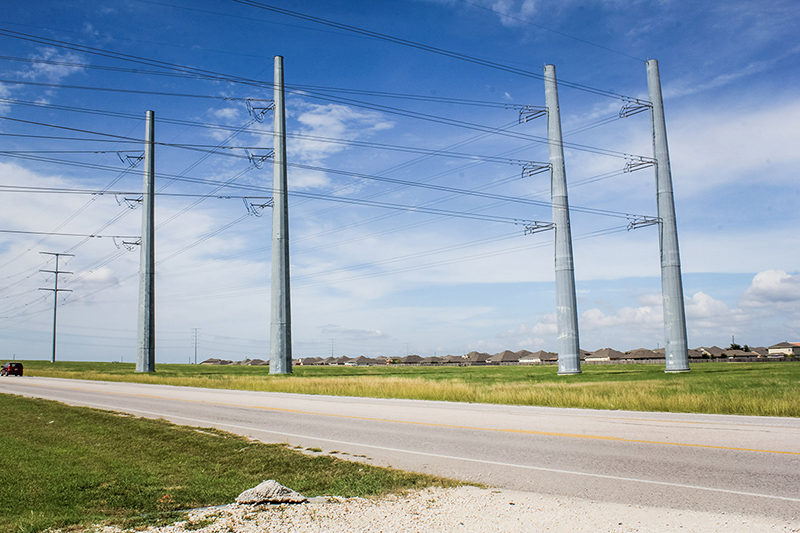
The Department of Energy has selected the Center for Electromechanics (CEM) in the Cockrell School of Engineering at The University of Texas at Austin to lead a new $1.6 million project to develop the technology needed to bring the reliable and efficient emerging electrical grid to rural parts of Texas and the nation.
It is one of seven major projects launched by the DOE’s Office of Electricity Delivery and Energy Reliability as part of a nearly $10 million research investment. The projects are intended to help utilities advance and expand their distributed energy resources (DERs), such as solar photovoltaics, combustion engines and energy storage systems onto the grid. This will help transform the grid from a one-way street into a two-way street for the flow of electricity.
Distributed energy resources are an increasingly important part of America’s energy mix, and improved sensing and monitoring, along with new modeling capabilities, will be critical for the ongoing national effort to invent a new grid that is less costly and more reliable. At UT Austin, CEM will work with project partners Argonne National Laboratory, Verivolt, National Instruments and Pedernales Electric Cooperative to leverage existing and emerging sensor technology and enable real-time grid-wise monitoring and modeling of loads and DERs.
“Augmenting and modernizing the legacy electric grid while continuing to maintain reliable electrical service is a lot like rebuilding a ship while at sea. There’s a huge downside if you don’t do it right,” said Bob Hebner, CEM director and a research professor in the Cockrell School’s Department of Mechanical Engineering. “That’s why we are proud to be part of a government-industry-university team with the skill and experience to preserve the best of the past while capturing the benefit of emerging capabilities.”
This work addresses a challenge with the existing grid, which was not designed to coordinate large numbers of DERs or manage them safely. Today’s traditional utility data acquisition and monitoring systems are not equipped for real-time monitoring of DERs or real-time processing of large volumes of data.
The focus of this project will be on the more rural electrical distribution systems that have problems and challenges different from those serving more densely populated areas. The project expects to develop affordable sensors that will offer detailed information about the behavior of the distribution system and inform a modern control approach that uses better situational awareness to minimize outage time. The system will be extensively modeled and tested at UT Austin and elsewhere. Then it will be installed to obtain field data and achieve a high level of system performance.
“The UT Austin project will leverage machine learning and big data, maintain cybersecurity and use a technical approach like that supporting the Internet of Things,” Hebner said. “And it will do all of that while preserving the best of what we have today.”
The six other projects selected by the DOE will be led by Palo Alto Research Center, Georgia Tech Research Corporation, Commonwealth Edison Company, Iowa State University of Science & Technology, which is leading two separate projects, and Washington State University.
